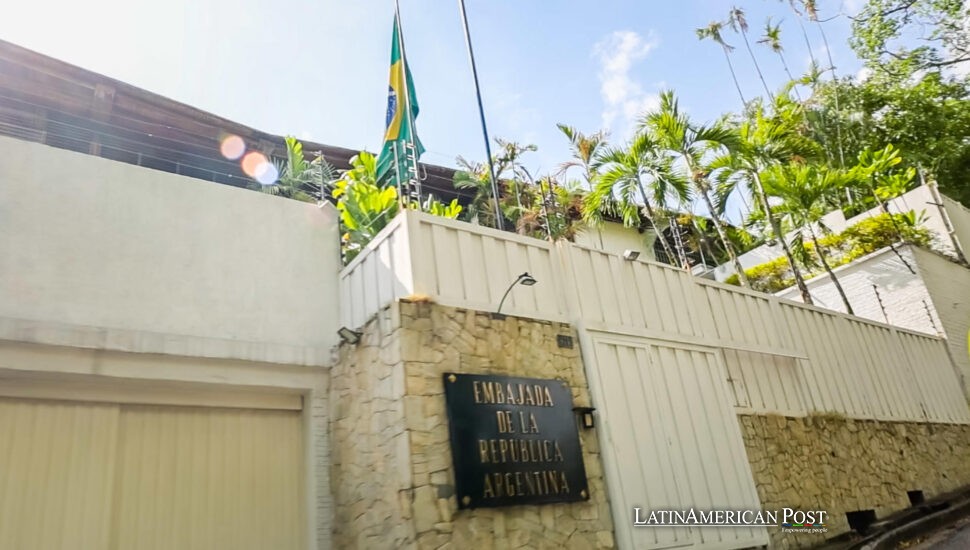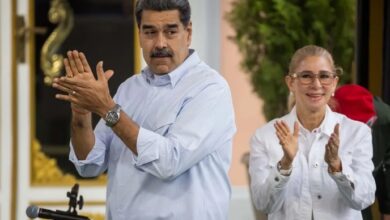Venezuelan Exiles Break Chains Searching for Freedom And Defying All Odds

After more than 13 months under precarious diplomatic asylum, five prominent members of the Venezuelan opposition have left the Argentine ambassador’s residence in Caracas. Their dramatic departure signals a new chapter of political defiance and highlights ongoing challenges under the Chavista regime.
A Daring Escape from the Argentine Residence
The Argentine ambassador’s residence in Caracas was both a safe place and a confinement for five vocal critics of Venezuela’s political leaders. On March 20, 2024, they looked for protection there, saying they faced constant persecution from Nicolás Maduro’s government. Lacking a continuous power supply and dependent on water delivered by tanker trucks, the group experienced constant strain. After Venezuelan authorities expelled Argentina’s diplomatic staff in August, their hardship grew. Only Brazilian officials remained to manage limited assistance.
The departure of these individuals—described by U.S. Secretary of State Marco Rubio as “a rescue operation”—did not come without risks. From the moment they entered the premises, they claimed to be under constant surveillance, referring to what they called a “police siege.” Tension built over the months, leading to international appeals for a humanitarian resolution. Diplomatic stalemates, however, made basic living conditions increasingly dire within the embassy compound, with no resolution in sight.
News on Tuesday that they had reached U.S. soil sent ripples throughout political circles in Caracas and beyond. The escape shows increased stress inside Venezuela. Human rights groups state the Maduro government is increasing control through the prosecution of outspoken opponents. International observers see patterns of intimidation against individuals who criticize the Chavista government. Venezuelan officials disagree with those statements. The group’s story describes life for individuals who challenge official narratives in simple terms.
Five figures are now outside Venezuela. They will join a larger community of Venezuelan exiles spread across different countries. Many have been forced to flee their homeland following alleged harassment and intimidation—a tactic critics say the government uses to stifle dissent. Other opposition leaders left similarly, and their flight copies of this. The departure shows many activists, politicians, and journalists next to academics seeking protection in different countries. This is a trend.
Profiles of the Opposition Figures
1. Magallí Meda
A close associate of prominent opposition leader María Corina Machado, Magallí Meda played a key role in the 2023 and 2024 electoral campaigns for the Venezuelan presidency. She co-founded the party Vente Venezuela with Machado and has been a strategic planner since 2010. During her time in the Argentine ambassador’s residence, Meda emerged as a fiery spokesperson, proclaiming the “death of international law on Venezuelan soil.” Stranded for months without reliable power, she urged foreign governments to acknowledge the untenable circumstances faced by political dissidents.
2. Claudia Macero
A journalist and university professor, Macero joined Vente Venezuela in 2015 and became its national communications coordinator in 2017. She managed media outreach during both recent presidential campaigns. Previously, Macero spent 15 days sheltering in the Netherlands embassy following an arrest warrant issued against her in late 2023. Although she was initially granted conditional liberty—which required regular court check-ins and prohibited her from leaving the country—these measures were revoked in March 2024. Fearing imminent arrest, she sought protection in the Argentine residence.
3. Humberto Villalobos
As the national electoral coordinator for Vente Venezuela, Villalobos dedicated more than a decade to organizing grassroots political efforts. He led the “Plan 600k,” an initiative to protect votes during the contested 2024 presidential election, which opposition figures believe was fraudulently awarded to Maduro. Villalobos was a driving force in mobilizing volunteers and electoral witnesses. During his time in the embassy, he maintained that the Chavista government suppresses the democratic process and denies legitimate election results.
4. Pedro Urruchurtu
A political scientist and university lecturer, Urruchurtu served as the coordinator of international affairs for Vente Venezuela. He managed foreign relations for both the 2023 and 2024 opposition campaigns. Like Macero, Urruchurtu took refuge in the Netherlands embassy after prosecutors issued a warrant for his arrest. Facing renewed legal threats in March 2024, he fled to the Argentine ambassador’s residence. His experiences show a problematic situation for scholars and activists who oppose the government. They perceive the environment as oppressive. In that environment, their problem is vulnerable. The situation affects them.
5. Omar González
At 74 years old, González offers extensive political experience. A former national deputy and current member of Vente Venezuela’s leadership, he played a critical role in the campaign for Edmundo González Urrutia—whom the opposition insists rightfully won the disputed 2024 presidential election. González had experience as a journalist, an educator, and an author. His earlier work as governor in Bolívar state gave him influence on the opposition’s discussions. He also thinks Maduro’s ongoing time as president, supported by the National Electoral Council, lacks legitimacy.
Diplomatic Asylum, Tensions, and the Road Ahead
Diplomatic asylum remains a topic of discussion. Current political trouble in Venezuela provides a background. The spectacular departure of five opposition politicians directs attention again to the unstable position of embassies from other countries in Caracas, which often serve as final shelters for political opponents. After Argentine officials were removed, the embassy surroundings grew notably worse. Without direct support, the group had to rely on sporadic water and electricity supplies, while Brazilian diplomats provided only nominal oversight.
Maduro’s government has repeatedly denied persecuting opposition figures. Officials claim that many of those facing criminal charges are linked to conspiracies aimed at undermining Venezuelan sovereignty. Organizations for human rights and international groups continue to worry about common intimidation strategies.
Five people leaving gives more support to claims that the Chavista government often attacks well-known opponents. A successful leave to the United States can later allow for asylum requests. People watching events expect a potential increase in requests to foreign embassies from opposition activists. They fear arrest in Venezuela. At the same time, Maduro’s administration and parts of the opposition continue negotiations. Many have doubts about the possibility of real dialogue.
Five exiles will connect with Venezuelan diaspora networks in the United States. Those networks are important to support opposition movements. Though the networks provide support and logistics, activists know distance does not guarantee safety. Leaders in exile still face threats and family pressure in Venezuela, making it difficult for them to continue advocacy from another nation.
A question is open about any change this well-known exit causes in Venezuela’s internal political calculations. It gives importance to the amount of opposition people believe they must go to for personal safety and democratic liberty. The new environment in the U.S. allows the group to regroup, share their stories on the international stage, and demand renewed pressure for systemic reforms within Venezuela.
Also Read: Latin America Greets Leo XIV, Debating Pope Francis’s Unfinished Legacy
For now, they have escaped a fragile existence in an embassy with no official diplomats from Argentina, no consistent power, and no guarantee of safety. The history of Venezuela shows continuous political problems. This creates stories of escape, asylum as well as survival against hardship. The way the journey influences the greater struggle for democratic accountability remains unclear. But one fact is obvious: the combined escape shows the seriousness of the situation for people that challenge the present system.





